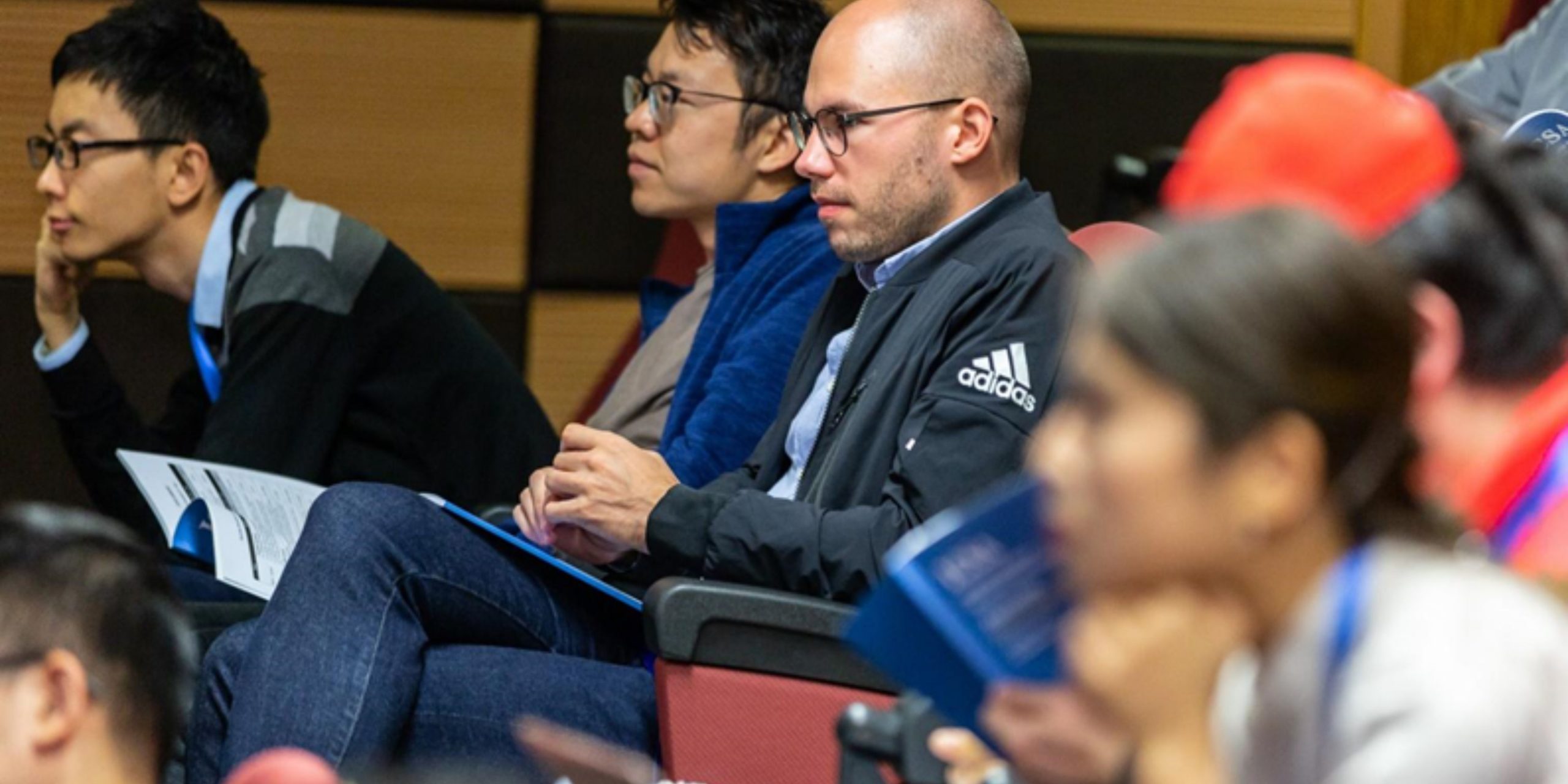The EIT Community’s webinar, “Dissemination of Education Case Studies & Good Practice”, gave the EIT’s Knowledge and Innovation Communities (KICs) the opportunity to showcase their unique approaches to education and fielded questions from the viewers.
Close to 80 education providers and policy makers joined online to listen to the presentation of the EIT’s unique innovation model and how it adapts its education programmes to the contexts of different sectors and societal challenges.
The webinar gave a comprehensive overview of how education can be wielded to promote sustainable innovation
The case studies were kicked off by EIT Climate-KIC, who introduced its Young Innovator’s Programme. The speaker, Luise Heidenreich, Co-head of Education & Learning at EIT Climate-KIC, layed out the stakes: “The climate emergency is here and that demand is growing for climate action.” Systemic change must form the basis of climate resilience and the philosophy behind EIT Climate-KIC’s programme is to empower society to undertake that systemic change. By giving students aged 12-18 years old the skills they need to take on climate change, the Young Innovator’s Programme mainstreams climate change education, systems thinking, and challenge-based learning. The programme develops tools for educators that are designed to stimulate and which can be adapted for different subjects. “What is really important is that this programme can be adapted to local needs, to local challenges, and to local contexts,” said Heidenreich.
Alberto Gonzalez, the Innovation and Entrepreneurship Education Manager for EIT InnoEnergy, kept up the theme of fighting climate change with his presentation on the Battle for Green Talent which takes student entrepreneurship in renewable energy to the next level. “We literally need everyone to achieve the energy transition so we are very much keen to support entrepreneurship, to ensuring that our students have the right competencies, the right knowledge, the right skills, and also the right mindset., said Gonzalez. The programme helps them overcome the challenges of capital, partnerships, prototyping, and more by giving them hands-on experience in business creation and innovation. It also has a competition component to let students test their ideas online against other teams. “They are equipped for success even if they don’t become entrepreneurs,” Gonzalez emphasised.
Giving students direct experience with the unique dynamics of their sector was also the focus of EIT Manufacturing‘s Teaching Factory Competition. Businesses (called “Challenge Owners” in the programme) give challenges to students (called “Solver Teams”) who then work on specific solutions which companies can then implement in their own business models. Tamar Chapidze, Innovation Officer at EIT Manufacturing, noted that “While the Teaching Factory Competition is more focused on developing skills and practical competencies for students in the manufacturing industry, it proved to be added value for the companies as provided solutions were implemented at least partially by the companies or they got some ideas for how to improve the solutions for their business models.” The financial sustainability of the programme was a particular highlight along with the fact that the programme directly led to the implementation of sustainable manufacturing solutions.
Dr. Guido Sonnemann, the University of Bordeaux coordinator for EIT RawMaterial‘s Advanced Materials for Innovative Recycling (AMIR) programme, raised the huge challenge of recycling the kinds of raw materials that are often used in the technologies being developed for the green transition. The AMIR programme was presented as a solution to getting learners into a new skills economy that will require new, unique skills in resource efficiency and recycling. “We need experts who are ready to work in the establishment of recycling and getting these jobs done,” Prof. Sonnemann emphasised. Consortium and industry partners actively participate throughout the programme, conducting seminars and giving advice to students while also recruiting students at the end of their studies. “We have a lot of students from emerging economies,” notes Dr. Sonnemann. “And for them this programme is a life changing opportunity.”
EIT Food’s Director of Education, Dr. Maarten von der Kamp, presented EIT Food‘s vision for the complex and silo-ed agrifood system: helping its 40 million workers upskill to take advantage of the world of innovation. It was critical to create something that could be scalable across the EU. EIT Food’s Professional Education and Certification System was presented as the solution. “We developed a competence framework to articulate what we mean by “innovation and entrepreneurship competencies,”” explains Dr. Kamp. The programme creates a recognisable certification system, a way for employers to implement new HR practices, and help source trainings from all over the EU to make sure they fit a quality framework. “Courses need to be relevent to the learner, they need to be relevent to the organiser that they’re working for, but they also need to be relevent to the food system change we are trying to drive.”
Source: European Institute of Innovation & Technology | News (https://bit.ly/3LjjAnw)
